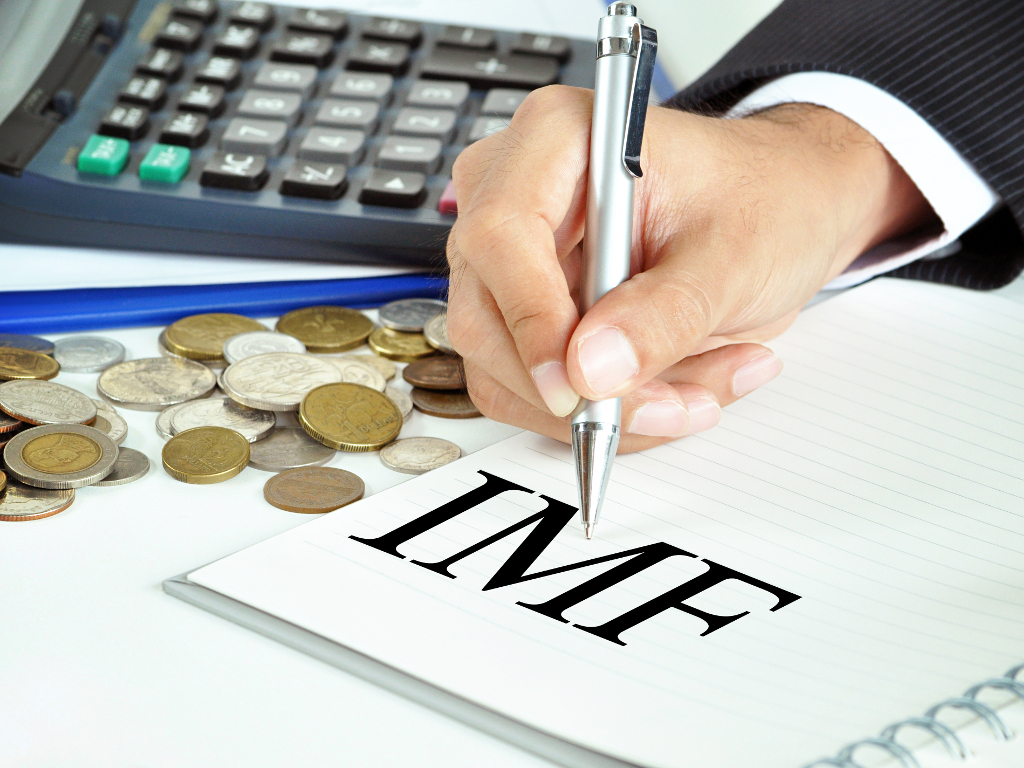IMF technical mission on September 13 in Belgrade – Eighth review of arrangement in October
Source: Politika/Beta
 Wednesday, 06.09.2017.
Wednesday, 06.09.2017.
 12:45
12:45
 Wednesday, 06.09.2017.
Wednesday, 06.09.2017.
 12:45
12:45
(Photo: Atstock Productions/shutterstock.com)

It is expected that the main topic of the upcoming technical mission will be the budget for 2018 and potential salary and pension raises, announced in early 2017 by the then prime minister and now president of Serbia, Aleksandar Vucic, the newspaper writes.
Roaf said each previous time that the issue would be discussed in autumn, during the preparation of the 2018 budget. During the previous visit to Serbia, which took place in July, Roaf said that there were announcements that the salaries in the public sector might increase by up to 10%, but that the field required “moderate actions”. He suggested that higher income should be used to reduce indebtedness and raise capital expenditures.
– If the current trend regarding revenues continues, they might be expected to grow in 2018 as well. This points to the possibility of potential additional room for raising wages and pensions next year, but we will discuss this when we come back – Roaf said at the time.
According to the Ministry of Finance, a surplus of RSD 60 billion was realized in the first six months of 2017. However, it is not yet known how much room there is for raising salaries and pensions. What's known is that a potential raise of salaries and pensions by only 1% increases expenditures by eight billion dinars.
Minister of Finance Dusan Vujovic stated for RTS that it was certain that there would be raises of salaries and pensions, but that the room for potential raises was still being carefully calculated.
– After eight months, there's a budget surplus nearly each month. These are incredibly good results, they reduce the need for incurring debt. We need to be careful about how we spend money – Vujovic said for the Radio-Television of Serbia.
It is already known that the IMF had recommended to the Government of Serbia for the raises to be in line with the growth of the GDP, that is, everything the citizens and the business sector create in one year.
– The aim of the program is for salaries to be raised in the country. This is proving to be successful, as salaries go up along with an increase in employment in the country. The best way to achieve this to keep the fiscal situation under control – Roaf said.
This also provides room for salary raises in the public sector, but not the kind of raises that would precede the economic growth, Roaf noted.
IMF Resident Representative in Serbia, Sebastian Sosa, said today that the IMF believed that there would be some room in the budget to raise the salaries in the public sector, but that the final decision would only be reached the next week, once the talks with representatives of Serbian authorities about the 2018 budget started.
Sosa said at a press conference that salary raises and one-off payments to pensioners mustn't jeopardize the fiscal stability in Serbian.
– We believe that there is some room to raise salaries, but this, as well as the payment of one-off help to the pensioners, will only be certain once the 2018 budget is projected – Sosa said.
He added that it depended among other things on whether the income tax was to be reduced.
He said that the growth rate of the GDP, projected at 3% for the current year, would be corrected once the data on the production in the sectors of agriculture, reduced due to the drought, and energy are processed.
– We are currently reviewing the projection of the growth of the GDP for 2017, taking into consideration the lower-than-expected growth rate in the second quarter, and the projected growth rate of 3% for 2017 would probably be lowered to an extent – Sosa said.
The economy of Serbia, according to him, has gained in strength considerably since 2015, when a three-year arrangement with the IMF was signed. The budget deficit has gone down from 7% of the GDP to the projected 1.1% of the GDP for the current year, and the public debt is dropping faster than planned.
– All the expectations have been met, the results are good, the economy is recovering, new jobs are being created – Sosa said and added that, despite the results achieved, there were still some vulnerable spots, as the reform of the public administration, public services and state companies was late.
Companies:
 Međunarodni monetarni fond-MMF Beograd
Međunarodni monetarni fond-MMF Beograd
 Vlada Republike Srbije
Vlada Republike Srbije
 Ministarstvo finansija Republike Srbije
Ministarstvo finansija Republike Srbije
Tags:
IMF
International Monetary Fund
International Monetary Fund Mission
International Monetary Fund Technical Mission
arrangement with the IMF
arrangement with the International Monetary Fund
review of the arrangement with the IMF
review of the arrangement with the International Monetary Fund
eighth review of the arrangement with the IMF
eighth review of the arrangement with the International Monetary Fund
James Roaf
Aleksandar Vucic
Dusan Vujovic
salary raises in Serbia
salaries in Serbia
pension raises in Serbia
pensions in Serbia
salaries
pensions
raising salaries and pension
gross domestic product of Serbia
GDP of Serbia
Sebastian Sosa
non performing loans
public sector reform
Comments
Your comment
Most Important News
Full information is available only to commercial users-subscribers and it is necessary to log in.
Follow the news, tenders, grants, legal regulations and reports on our portal.
Registracija na eKapiji vam omogućava pristup potpunim informacijama i dnevnom biltenu
Naš dnevni ekonomski bilten će stizati na vašu mejl adresu krajem svakog radnog dana. Bilteni su personalizovani prema interesovanjima svakog korisnika zasebno,
uz konsultacije sa našim ekspertima.


 Izdanje Srbija
Izdanje Srbija Serbische Ausgabe
Serbische Ausgabe Izdanje BiH
Izdanje BiH Izdanje Crna Gora
Izdanje Crna Gora


 News
News






